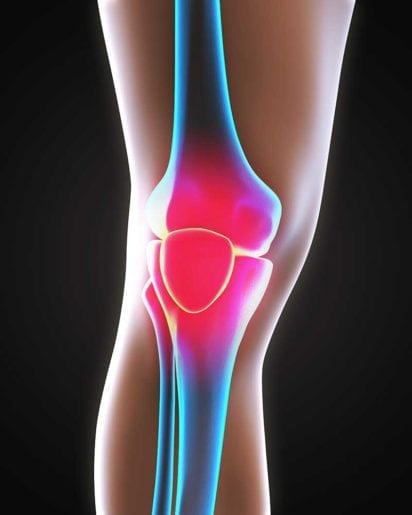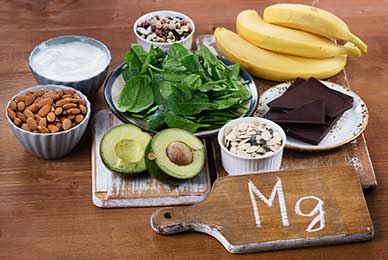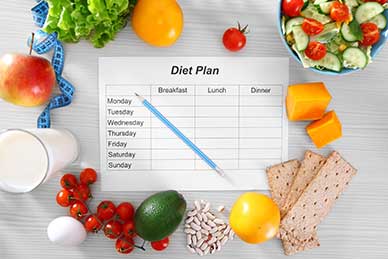Minor joint discomfort is a common concern that affects millions of Americans. A new study suggests that the natural supplements chondroitin and glucosamine outperform even the best modern treatments.
Unfortunately, minor pain is a common problem, affecting around 100 million people in the United States alone. Joint discomfort is one of the most common causes of this pain epidemic. Not only can sub-optimal joint health cause people an immeasurable amount of daily discomfort, but it can also cause destructive changes to joints over time that leave people immobilized and unable to care for themselves. Modern medicine has a few first-line treatments for minor joint discomfort that often work for many. However, some people continue to struggle to find an effective remedy. New research suggests that chondroitin and glucosamine supplements may be the answer.
The Nationwide Pain Dilemma
While opiates and opioids can treat acute/short-lived pain successfully, addressing lingering discomfort is one of the greatest challenges to modern medicine. Taking these medications over a long period of time can cause addiction or overdose as well as a host of other unpleasant side effects. These medications also fail to address the long-term degenerative changes in joints that gradually worsen pain and reduce mobility over years. Because most pain medications are a short-term answer to a long-term problem, finding safer and more effective options for minor joint discomfort is a major priority in pharmaceutical research.
 Celecoxib, a non-opiate anti-inflammatory pain medication, is the current preferred treatment for joint conditions such as osteoarthritis. Celecoxib reduces pain from inflammation of joints while slowing the joint destruction that can occur over time. However, even this first-line treatment does not always affect pain or slow joint damage. This medication is only effective in some patients, and even then it merely serves as a “Band-Aid” rather than helping to promote ongoing joint health. In addition, it can have serious side effects such as permanent liver damage. As a result, many people seek a natural option that can help soothe minor joint discomfort.
Celecoxib, a non-opiate anti-inflammatory pain medication, is the current preferred treatment for joint conditions such as osteoarthritis. Celecoxib reduces pain from inflammation of joints while slowing the joint destruction that can occur over time. However, even this first-line treatment does not always affect pain or slow joint damage. This medication is only effective in some patients, and even then it merely serves as a “Band-Aid” rather than helping to promote ongoing joint health. In addition, it can have serious side effects such as permanent liver damage. As a result, many people seek a natural option that can help soothe minor joint discomfort.
Chondroitin and Glucosamine: Natural Options for Minor Joint Discomfort?
Because modern medicine has few current answers, a great deal of research has gone into finding newer and safer options for joint discomfort. Studies that have been done suggest almost unanimously that the natural remedies chondroitin and glucosamine appear to be superior in many ways to the current pharmacological options. The combination of these two supplements has been shown in studies to reduce minor joint discomfort in people with osteoarthritis better than celecoxib or placebo. Even better, they wield these benefits without as much risk of liver damage and other life-threatening side effects.
In addition, these supplements also appear to make a measurable difference in protecting against joint damage and degeneration. A recent study looked at people who take chondroitin sulfate versus those who take celecoxib using modern MRI technology. The group taking chondroitin had fewer joint changes at the end of the two-year trial. They had less thinning of the cartilage that lines and protects joints as well as fewer flare-ups in the synovial tissues of the knee, which protect and maintain the joint space. Because these flare-ups and joint degeneration are painful, these people also tend to experience less pain, swelling and other symptoms.
Natural Remedies for Minor Joint Discomfort
Chondroitin and glucosamine are not new miracle drugs, but rather natural components of the cartilage that makes up much of your joints. The glucosamine taken as a supplement is usually isolated from the shells of shellfish, while chondroitin is taken from natural animal cartilage. It appears that taking a supplement containing these fundamental building blocks of human cartilage can help to maintain the cartilage in our joints, thus easing minor joint discomfort and slowing the degenerative changes that define certain joint conditions. It is important to talk to your physician before taking these or any other supplements. In addition, people who are allergic to shellfish may need to take a special form of glucosamine that is not taken from seafood components.
Modern medicine and pharmacology have brought many exciting advances in health care. People now have options for diseases that disabled or killed us just a century ago. In some cases, these medications also improve the quality of life immensely. However, natural remedies remain the best option for many people. If you suffer from minor joint discomfort, taking natural supplements containing chondroitin and glucosamine may be effective, while also protecting against long-term damage—with fewer side effects than their pharmaceutical counterparts.
 Low dopamine levels can have a variety of negative effects. Defects in dopamine production can lead to Parkinson’s disease as well as serious mental illnesses. However, low dopamine can have less obvious but just as pervasive effects as well. People who have a shortage of this neurotransmitter may suffer from depression and low motivation. When researchers removed the part of the brain that produces dopamine from rats, the rats became
Low dopamine levels can have a variety of negative effects. Defects in dopamine production can lead to Parkinson’s disease as well as serious mental illnesses. However, low dopamine can have less obvious but just as pervasive effects as well. People who have a shortage of this neurotransmitter may suffer from depression and low motivation. When researchers removed the part of the brain that produces dopamine from rats, the rats became  If you suspect you may be low on magnesium, you are not alone. Experts estimate that around one in 50 people in the Western world is seriously deficient in this mineral. Magnesium can be found in a
If you suspect you may be low on magnesium, you are not alone. Experts estimate that around one in 50 people in the Western world is seriously deficient in this mineral. Magnesium can be found in a  There are ways to lose weight and maintain a healthy weight for a lifetime, but these are not crash diets so much as permanent lifestyle changes. Here are a few ways that you can begin a lifelong journey toward a trim figure and a healthy relationship with food:
There are ways to lose weight and maintain a healthy weight for a lifetime, but these are not crash diets so much as permanent lifestyle changes. Here are a few ways that you can begin a lifelong journey toward a trim figure and a healthy relationship with food: Unfortunately, many elderly people experience more decline in their cognitive health than this. Even people who do not have dementia may find themselves dealing with a condition known as
Unfortunately, many elderly people experience more decline in their cognitive health than this. Even people who do not have dementia may find themselves dealing with a condition known as  Iron plays
Iron plays  If you believe that you are suffering from a deficiency of iron, there are several ways to quickly build up healthy levels of this vitamin. Many people simply add more iron-rich foods to their diets and take care to eat vegetarian sources of iron with an acidic food such as lemon. However, it can be difficult to get the iron that you need from diet alone, especially for women of reproductive age and young children who are growing quickly. For these people, taking an iron supplement or a
If you believe that you are suffering from a deficiency of iron, there are several ways to quickly build up healthy levels of this vitamin. Many people simply add more iron-rich foods to their diets and take care to eat vegetarian sources of iron with an acidic food such as lemon. However, it can be difficult to get the iron that you need from diet alone, especially for women of reproductive age and young children who are growing quickly. For these people, taking an iron supplement or a